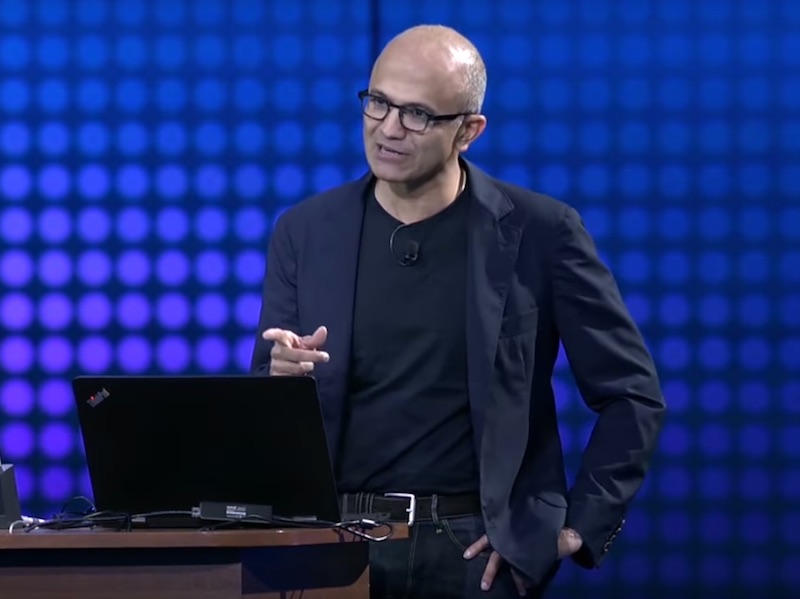- Home
- Laptops
- Laptops News
- Windows 10 Doesn't Violate Your Privacy, Assures Microsoft
Windows 10 Doesn't Violate Your Privacy, Assures Microsoft

Several features and default settings in Windows 10 have led to the wide-spanning impression that it compromises user privacy on many fronts. Microsoft has now offered explanations to assure users that its latest operating system doesn't put anyone's privacy and personal information at risk.
"From the very beginning, we designed Windows 10 with two straightforward privacy principles in mind," Terry Myerson, Microsoft's Executive Vice President of the Windows and Devices Group wrote in a post on Blogging Windows on Monday. "Windows 10 collects information so the product will work better for you. And you are in control with the ability to determine what information is collected." The company has also updated its Windows 10 services preferences FAQ pages to be clearer on the privacy front.
Windows 10 was released to public in 190 countries on July 29, but privacy concerns around it started to surface starting last year. A feature in Windows 10 said that the company is listening what commands you give to it and observing what you type on the machine. While Microsoft assured that it was done only to make its products better at serving you, privacy advocates saw this as a "keylogging" tool designed to spy on users.
Fuelling these concerns were things like Windows 10 sharing users' Wi-Fi credentials with their contacts; sharing one's Internet bandwidth to seed update to others; and assigning every machine with a unique ID to track users. But the company is finally addressing these concerns.
Myerson said that Microsoft isn't collecting anyone's content or files. In fact, on contrary, it is taking steps to avoid collecting any information that directly identifies a user. "We collect a limited amount of information to help us provide a secure and reliable experience," the company said. "This includes data like an anonymous device ID and device type. ... This doesn't include any of your content or files, and we take several steps to avoid collecting any information that directly identifies you, such as your name, email address or account ID."
He added that data collected could broadly be divided into three types - safety and reliability data, personalisation data, and advertising data.
The data it collects through crash analytics, falling in the first category, is gleaned to offer improvements and bug fixes. Telemetry was prior to Windows 10 available as an opt-in Windows Error Reporting feature, but in Windows 10 it is on by default. The company assured that telemetry data it stores on dedicated servers are used exclusively for reliability purposes, and users can at any point switch between Basic, Enhanced, and Full levels of telemetry data collection from the Feedback & Diagnostics section in Settings. Windows 10 Enterprise and Education users get a Security level as well.
The company also assured the businesses that don't want to share any information with Microsoft that it will offer an update later this year that will allow devices running Windows 10 Enterprise to opt-out of such features.
As for the personalisation information Microsoft garners from apps and services like OneDrive Cortana, Outlook, Skype, Bing, and Microsoft Store, the company said that these are only used to enhance a user's experience. "Windows sends and gets info ... to give you access to online services like Outlook, OneDrive, Cortana, Skype, Bing and the Microsoft Store, to personalize your experiences on Windows, to help you keep your preferences and files in sync on all your devices, to help keep your device up to date, and so that we can make the next features of Windows ones that you'll enjoy."
Addressing the "keylogging" activies in Windows 10, Microsoft assures that it uses the information to offer better suggestions and auto-corrections to users. "To give you text suggestions and auto-corrections that actually help, we make your personalized dictionary by using a sample of your typed and handwritten words," it said.
"The typing data includes a sample of characters and words you type, changes you manually make to text and words you add to your dictionary. We automatically take out things that could potentially be used to identify you, like IDs and IP addresses."
Detailing its use of IDs to serve targeted ads, Microsoft said the purpose of the advertising IDs is just to ensure users are served with a good advertisement experience - for example, making sure users don't seeing the same advertisements repeatedly. It once again separates itself from Google, the leader in online advertising, with Myerson saying, "Unlike some other platforms, no matter what privacy options you choose, neither Windows 10 nor any other Microsoft software scans the content of your email or other communications, or your files, in order to deliver targeted advertising to you."
While it's laudable that the company finally decided to address everyone's privacy concerns, the company's vaguely worded privacy policy certainly left room for interpretation as to how much data it gleaned from users, and how it could be used. The more detailed privacy documents unveiled by Microsoft, along with Terry Myerson's post, should give people an idea of what's happening on their systems and the reasoning behind why the company is doing it.
Catch the latest from the Consumer Electronics Show on Gadgets 360, at our CES 2026 hub.
Related Stories
- Samsung Galaxy Unpacked 2025
- ChatGPT
- Redmi Note 14 Pro+
- iPhone 16
- Apple Vision Pro
- Oneplus 12
- OnePlus Nord CE 3 Lite 5G
- iPhone 13
- Xiaomi 14 Pro
- Oppo Find N3
- Tecno Spark Go (2023)
- Realme V30
- Best Phones Under 25000
- Samsung Galaxy S24 Series
- Cryptocurrency
- iQoo 12
- Samsung Galaxy S24 Ultra
- Giottus
- Samsung Galaxy Z Flip 5
- Apple 'Scary Fast'
- Housefull 5
- GoPro Hero 12 Black Review
- Invincible Season 2
- JioGlass
- HD Ready TV
- Laptop Under 50000
- Smartwatch Under 10000
- Latest Mobile Phones
- Compare Phones
- Realme Neo 8
- OPPO Reno 15 FS
- Red Magic 11 Air
- Honor Magic 8 RSR Porsche Design
- Honor Magic 8 Pro Air
- Infinix Note Edge
- Lava Blaze Duo 3
- Tecno Spark Go 3
- Acer Chromebook 311 (2026)
- Acer Chromebook Spin 311
- Lenovo Idea Tab Plus
- Realme Pad 3
- Moto Watch
- Garmin Quatix 8 Pro
- Haier H5E Series
- Acerpure Nitro Z Series 100-inch QLED TV
- Asus ROG Ally
- Nintendo Switch Lite
- Haier 1.6 Ton 5 Star Inverter Split AC (HSU19G-MZAID5BN-INV)
- Haier 1.6 Ton 5 Star Inverter Split AC (HSU19G-MZAIM5BN-INV)







![[Sponsored] Haier C90 OLED TV | Dolby Vision IQ, 144Hz OLED and Google TV in Action](https://www.gadgets360.com/static/mobile/images/spacer.png)









